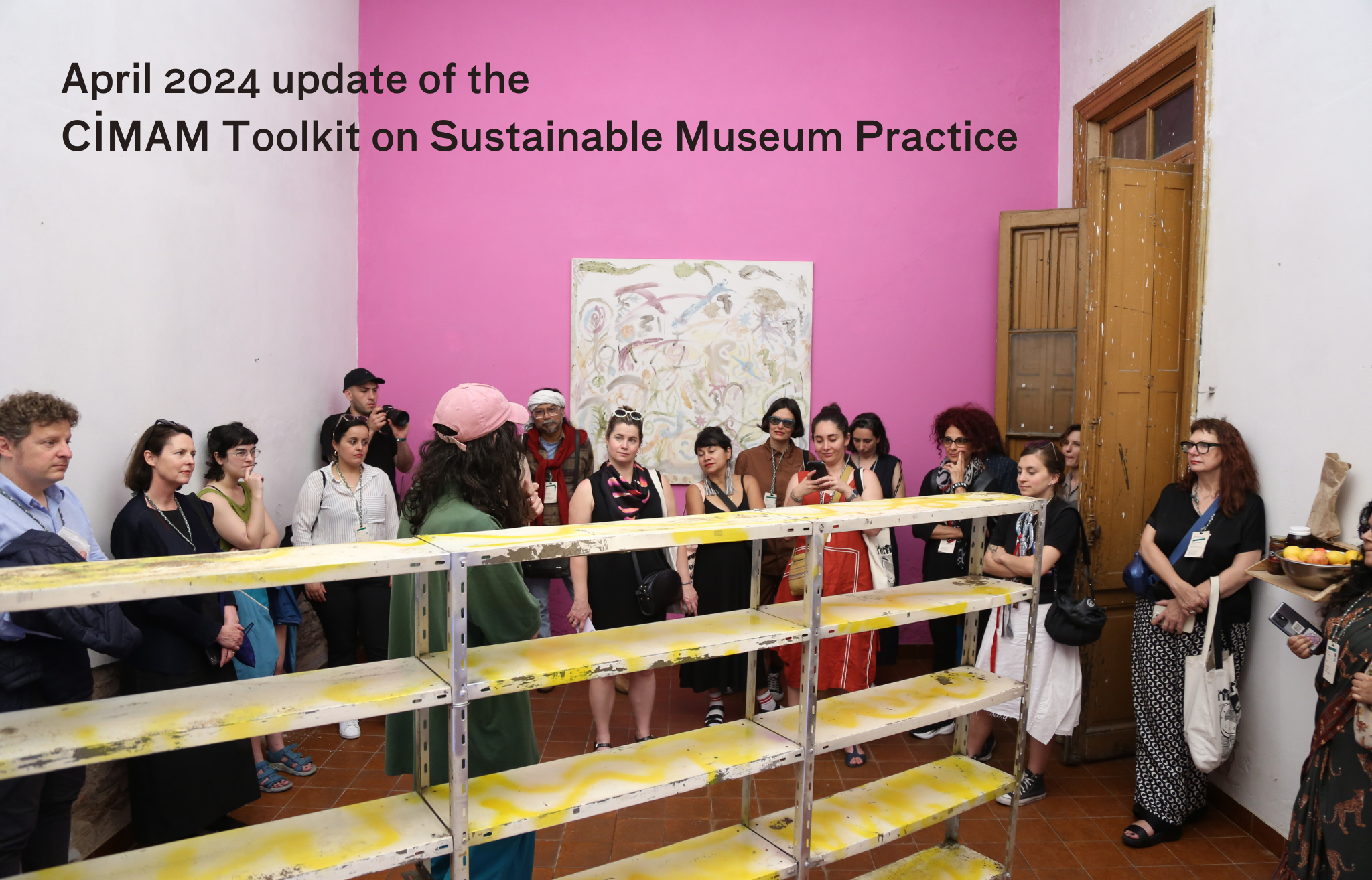CIMAM Toolkit on Sustainable Museum Practices: Latest Update

As part of its ongoing commitment to promote sustainability in the cultural sector, CIMAM shares the April updates of its Toolkit for Sustainable Museum Practice.
Reading List:
Article
Museums are reckoning with their own carbon footprints as they work to safeguard their collections from heat and storms.
Written by Claire Elise Thompson for Grist, 27 March, 2024.
Book
Edited by Fabienne Liptay and Liliana Gómez, to be published by Diaphanes, October 2024.
An edited collection of contributions to conversations about the climate crisis and its role in critical discourse.
The climate change crisis has become part of aesthetic discourse and critical research in culture and the arts. Future-oriented, ecologically conceived possibilities for action are being explored by artists, curators, and scholars alike. eco-operations addresses these emerging aesthetic ecologies and new technologies of cooperation that both challenge and shape a sustainable future, foregrounding interruptions, ruptures, disconnections, dissonances, exclusions, and allochronism. Moving beyond the concepts of “flow” and “network” as a single, coherent (ecological or technological) system, eco-operations instead emphasizes the frictions within asynchronously running systems. The infrastructures and formats of artistic production and exhibition play a central role here, as they themselves constitute ecosystems that invite and regulate processes of sharing and exchange. Artists and activists are embedded in these ecosystems, in which they simultaneously intervene when searching for alternative ways of creating collaborative practice. Bringing together scholars, artists, writers, and curators, and working across a range of disciplines, eco-operations explores this field of tension between global and local ecologies and aims to speculate on where dissonances imply both creative potential and political challenges.
eco-operations features contributions by Dalida María Benfield, Ursula Biemann, Lisa Blackmore, Mateo Chacón Pino, Lucrezia Cippitelli, T. J. Demos, Sandra Frimmel, Laura Flórez, Lorena Cely, Alexandra Gelis, Liliana Gómez, Fabienne Liptay, Uriel Orlow, and Dorota Sajewska.
Inspiring Projects and Platforms
Returning on September 15 with the theme of Art & Science Collide, PST ART brings together more than 60 exhibiting institutions throughout Southern California, offering an opportunity at an unprecedented scale for institutions to build community, unite in climate action, and test and study sustainable exhibition practices while fostering collaboration on minimizing environmental impact within the museum field.
Action Plans, Guidelines, and Protocols
Guía de Autoevaluación en Sostenibilidad de Museos, from the Ibermuseos Program to support management and promote sustainable practices in museum institutions. It is an intuitive and accessible self-diagnostic tool built on a multidimensional and integrated perspective that will allow museums to review themselves and know their degree of sustainability. To this end, the Guide assumes the transversal concept of sustainability to address from management practices, to communication and mediation, through preservation and conservation to research and programming, without neglecting the involvement and participation of communities.
Climate Adaptation and Environmental Action. The National Visual Arts Association of Australia proposes a set of Principles, Ethics, and Rights in which this Climate Adaptation and Environmental Action plan is included. The arts have played a significant role in social change movements through history, and can play a leading role in community awareness of and responses to the climate crisis.
Please send your contributions to info@cimam.org. With your valuable insights, we'll be delighted to expand our Toolkit for Environmental Museum Practices.
Thank you for your ongoing dedication to sustainable practices in the arts.